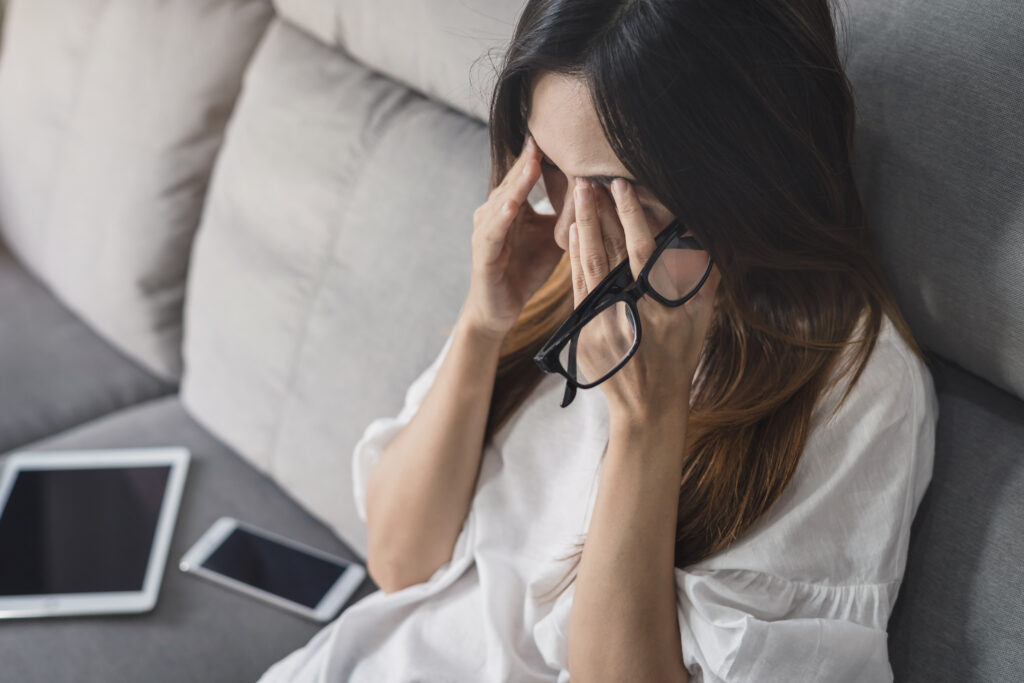If you're dealing with a sports injury in Gresham, you might be wondering about the best ways to find genuine relief. It's essential to understand that effective recovery often involves more than just rest; combining physical therapy, chiropractic care, and community resources can make a significant difference. You'll find that local experts offer tailored programs to enhance your healing process, but it's not just about treatment. What you do outside of therapy could be just as important in your journey back to peak performance. Curious about the specific techniques that can help you?
Understanding Sports Injuries
Sports injuries are more common than you might think, affecting athletes of all levels. Whether you're a weekend warrior or a seasoned pro, injuries can occur unexpectedly and disrupt your training. Understanding the various types of sports injuries is essential in recognizing their symptoms and knowing how to respond effectively.
You'll often encounter acute injuries, which happen suddenly, like sprains, fractures, or strains. These injuries usually result from a specific incident, such as a fall or collision.
On the other hand, overuse injuries develop gradually over time due to repetitive stress on certain body parts. Conditions like tendonitis and stress fractures fall into this category, and they can be just as debilitating.
It's vital to pay attention to your body's signals. If you experience pain, swelling, or decreased range of motion, you could be dealing with a sports injury. Ignoring these signs can lead to more severe issues down the line.
You should also consider your training habits; overtraining, inadequate warm-ups, and poor technique can increase your risk of injury.
Preventing sports injuries involves a proactive approach. Incorporating proper warm-ups, strength training, and flexibility exercises into your routine can help safeguard against injuries.
Additionally, wearing appropriate gear suited for your sport can make a significant difference.
Importance of Physical Therapy
Physical therapy is vital for anyone recovering from a sports injury, as it not only aids in healing but also helps prevent future problems. When you're injured, it might be tempting to rest completely, but this approach can lead to stiffness and weakness.
A physical therapist will create a tailored recovery plan that focuses on restoring your strength, flexibility, and range of motion. By engaging in targeted exercises and stretches, you'll not only speed up your recovery but also improve your overall athletic performance.
Physical therapy teaches you how to move correctly, reducing the risk of re-injury. You'll learn proper techniques to strengthen the affected area while integrating your body mechanics to avoid additional strain.
Moreover, physical therapy helps you understand your body's signals. You'll gain insights into how to listen to your body and recognize when it's time to push yourself or when you need to take a step back. This knowledge is invaluable, especially if you plan to return to competitive sports.
Additionally, regular sessions with a therapist can provide the motivation and accountability you need during your recovery. They'll track your progress, adjust your program as needed, and guarantee you're on the right path.
Ice and Compression Techniques
Often overlooked, ice and compression techniques are essential for managing pain and swelling after a sports injury. When you experience an injury, your body naturally responds with inflammation, which can lead to discomfort and hinder your recovery. By using ice and compression, you can effectively reduce this swelling and alleviate pain, allowing you to get back on track.
To start, apply ice to the injured area as soon as possible. You can use an ice pack, a bag of frozen peas, or even ice wrapped in a towel. Aim for about 15-20 minutes of icing every hour, especially in the first 48 hours after the injury.
Make sure to avoid placing ice directly on your skin to prevent frostbite; always use a cloth barrier. Ice helps constrict blood vessels, which reduces blood flow to the injured area, ultimately minimizing swelling and numbing pain.
Next, incorporate compression to further control swelling. You can use an elastic bandage or a compression wrap to apply gentle pressure to the injured area. This helps to limit the accumulation of fluid, providing both support and stability.
When wrapping, be careful not to make it too tight, as this could hinder circulation and cause additional issues.
Combining ice and compression not only aids in reducing swelling but also promotes a quicker recovery. So, don't underestimate these simple yet effective techniques; they can make a significant difference in your healing process after a sports injury.
Benefits of Rest and Recovery
After an injury, understanding the benefits of rest and recovery is essential for your healing process. Your body needs time to repair itself, and pushing through pain can lead to more severe complications.
Rest allows the damaged tissues to heal, reducing inflammation and promoting blood flow to the affected area. When you let your body recover, you're also preventing further injury, which is vital for your long-term performance.
Recovery isn't just about physical rest; it also involves mental recuperation. Taking a break from your usual routine helps you clear your mind, reducing stress and anxiety associated with your injury. This mental reset can enhance your overall well-being, making you more resilient when you return to your sport.
Additionally, incorporating proper recovery techniques—like gentle stretching or low-impact activities—can be beneficial. These methods maintain your mobility without overexerting yourself.
You'll also want to stay hydrated and nourish your body with the right nutrients, as this fuels the healing process.
Alternative Treatment Options
When you're looking for ways to enhance your recovery, alternative treatment options like acupuncture and herbal remedies can be worth considering.
Acupuncture may help relieve pain and improve mobility, while herbal remedies offer a natural approach to healing.
Exploring these alternatives might just provide the relief you need.
Acupuncture for Recovery
Exploring acupuncture for recovery can offer athletes a unique approach to pain relief and healing. This ancient practice involves inserting thin needles into specific points on the body, promoting natural healing and reducing pain. Many athletes have found acupuncture to be a valuable addition to their recovery regimen.
Here are some benefits you might experience with acupuncture:
- Pain relief: It can effectively alleviate chronic pain and soreness from injuries.
- Enhanced circulation: Improved blood flow supports faster recovery and reduces inflammation.
- Reduced muscle tension: Acupuncture helps relax tight muscles, easing discomfort and enhancing mobility.
- Stress reduction: It promotes relaxation, which can be essential for mental recovery after intense training or competition.
- Holistic approach: Acupuncture addresses not just physical symptoms, but also emotional and mental well-being.
If you're considering acupuncture, consult a qualified practitioner who specializes in sports injuries. This treatment can complement your existing recovery strategies, helping you get back to your best performance sooner.
With its holistic benefits, acupuncture might just be the relief you're seeking in your journey to recovery.
Herbal Remedies Benefits
Harnessing the power of herbal remedies can provide athletes with effective alternatives for injury relief and recovery. Many natural herbs possess anti-inflammatory and analgesic properties that can aid in healing. For instance, turmeric, known for its active compound curcumin, can help reduce swelling and pain. You may find adding turmeric to your diet or taking it as a supplement beneficial.
Another powerful herbal option is arnica, which is often used topically to alleviate bruising and soreness. Applying arnica gel or cream directly to the affected area can speed up recovery.
Additionally, ginger can also be an excellent choice for reducing inflammation and discomfort; incorporating it into your meals or consuming it as tea can enhance your recovery process.
Don't overlook the benefits of willow bark, often called "nature's aspirin," which can be effective for pain relief.
Always consult with a healthcare professional before starting any herbal treatment to guarantee safety and suitability for your specific injury. By integrating these herbal remedies into your recovery routine, you can complement traditional treatments and help your body heal more efficiently, ultimately getting you back in the game faster.
Local Resources in Gresham
Gresham offers a wealth of local resources to help athletes recover from sports injuries effectively.
Whether you're dealing with a sprain, strain, or other injury, you've got options right in your community. Utilizing these resources can make a significant difference in your recovery process and overall well-being.
Here are some valuable local resources you should consider:
- Physical Therapy Clinics: Facilities like Gresham Physical Therapy provide tailored rehab programs to help you regain strength and flexibility.
- Chiropractors: Local chiropractors can assist in aligning your body, reducing pain, and improving mobility.
- Sports Medicine Specialists: These professionals focus specifically on sports-related injuries and can offer expert advice and treatment plans.
- Fitness Centers: Many gyms in Gresham offer specialized classes and equipment to aid in your recovery while keeping you active.
- Community Workshops: Look for workshops on injury prevention and management, where you can learn techniques and exercises to minimize future injuries.
Conclusion
In Gresham, embracing a holistic approach to sports injury relief can make all the difference in your recovery. By combining physical therapy, chiropractic care, and community resources, you're setting yourself up for success. Don't underestimate the power of rest, ice, and compression techniques, along with alternative treatments. With the right support and resources, you'll not only heal effectively but also enhance your performance. Remember, prioritizing your recovery is key to getting back in the game stronger than ever.



